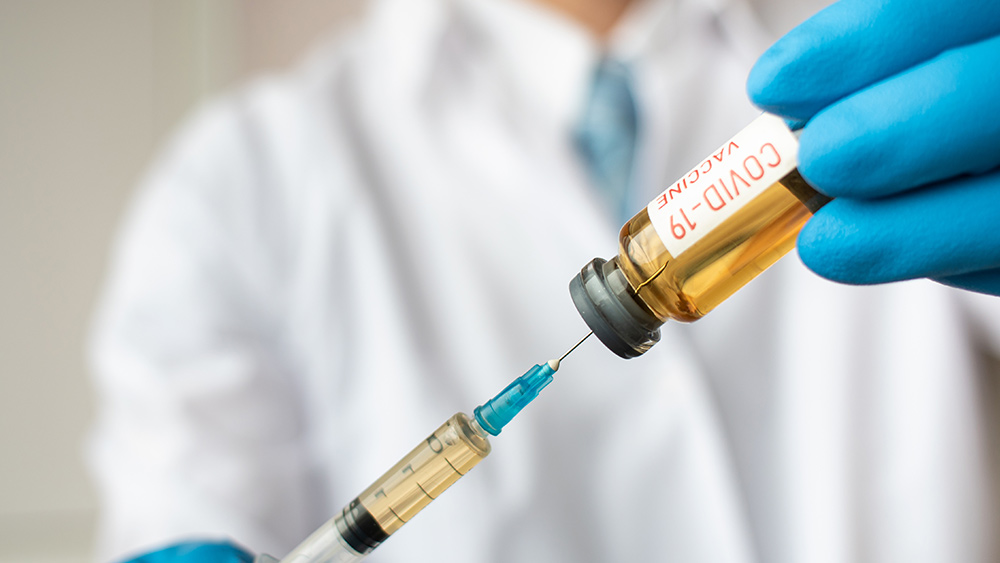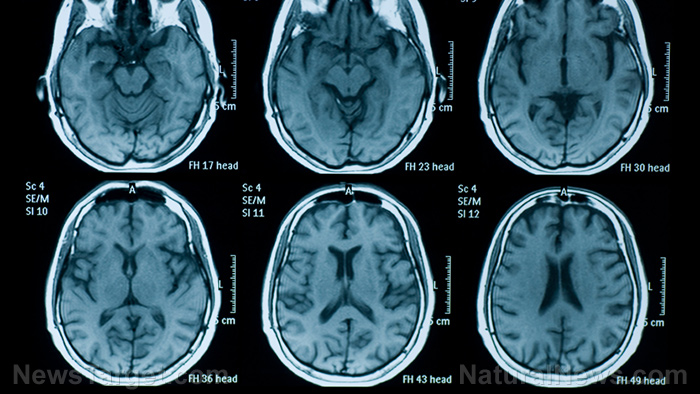Study: Taking antidepressants while pregnant linked to a greater risk of developing gestational diabetes
10/02/2020 / By Virgilio Marin

Pregnant women who are taking antidepressants may be at greater risk of gestational diabetes, suggests a recent study published in the online journal BMJ Open.
Researchers from the Centre Hospitalier Universitaire Sainte-Justine in Montreal said that the risk of gestational diabetes was greatest in pregnant mothers taking venlafaxine and amitriptyline. Both of these are used to treat major depressive disorder and anxiety disorders.
Gestational diabetes is a type of diabetes that occurs for the first time during pregnancy, characterized by high blood sugar levels that can endanger both a mother and her child’s health. Those with the condition may experience prolonged labor and give birth to overweight babies, among other complications.
According to the Centers for Disease Control and Prevention (CDC), two to 10 percent of pregnancies in the United States are affected by gestational diabetes every year. While blood sugar levels usually return to normal after giving birth, about 50 percent of women with the condition go on to develop Type 2 diabetes, added the CDC.
Antidepressants linked to gestational diabetes
The researchers examined the data from the Quebec Pregnancy Cohort, which incorporated three Canadian databases and included all pregnancies and children born in Quebec from 1998 to 2015. The team identified cases of gestational diabetes that occurred after 20 weeks of pregnancy. Each case was randomly matched to 10 unaffected pregnancies involving women with the same age and year of delivery.
The researchers identified which women were using antidepressants by looking at prescriptions filled for these drugs between the start of pregnancy and the diagnosis of gestational diabetes. They found that 9,741 women or about four percent of the entire cohort took antidepressants. These included venlafaxine and amitriptyline, as well as a a class of drugs called selective serotonin reuptake inhibitors – the most commonly prescribed antidepressants.
After adjusting for potentially confounding factors, such as age, welfare assistance and place of residence, the team found that pregnant women who took antidepressants had a 19 percent increased risk of gestational diabetes compared to those not on any of the medications.
The risk was greatest among pregnant women who took venlafaxine and amitriptyline, which are linked to a 27 percent and 52 percent increased risk of the conditon. The team noted that the longer women used antidepressants, the higher the likelihood of developing gestational diabetes.
As for why the antidepressants caused gestational diabetes, the researchers suspected that they may affect glucose metabolism by decreasing pancreatic secretion of insulin and increasing insulin resistance. Serotonin, the target of most antidepressants, plays an important role in glucose metabolism. Moreover, women who take these drugs are susceptible to weight gain, which is a known risk factor for diabetes.
Treating depression naturally
There are natural ways of treating depression without relying on prescription drugs.
St. John’s Wort is an herb that’s popularly used as a natural antidepressant in Europe. Research suggests that it may change how the brain process important neurotransmitters linked to depression. People have used it for centuries to improve mood, and some studies show that it may offer relief to some people with mild to moderate forms of the disorder. However, St. John’s Wort may interact negatively with other medications, so it’s important to consult a medical professional first before taking it.
Omega-3 fatty acids may also boost mental health. These healthy fatty acids are commonly found in fatty fish, though they’re also available as a supplement. Some studies suggest that taking large doses of omega-3 fatty acids may improve mood and help treat depression.
You can also consider meditation techniques and physical exercises that engage the mind. These activities can help you relax and ease some of the symptoms of depression. (Related: Scientists discover a new association between endocannabinoids and exercise to treat depression.)
Learn more about alternative treatment for depression at Mind.news.
Sources include:
Tagged Under: antidepressants side effects, brain health, children's health, depression, diabetes, diabetes risk, Diseases, Gestational Diabetes, infant's health, mental health, pregnancy, women's health


















